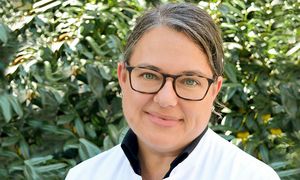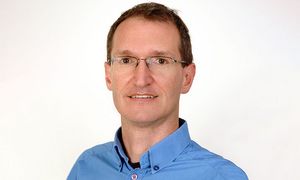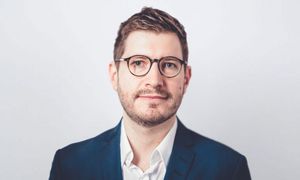What causes depression?
Depression is one of the most common mental illnesses. Up to 20 percent of all people experience it at least once in their lives. Several factors contribute to the development and course of depression: Environmental influences such as negative life events, stress or exhaustion, disruptions to neurotransmitter balance, and genetic predisposition.
Symptoms of depression
The typical symptoms of depression include:
- dampened mood
- loss of interest and joy
- reduced motivation
Depressions are often accompanied by:
- difficulties concentrating
- feelings of guilt
- diminished self-esteem
- inner turmoil
- pessimistic outlook for the future
- suicidal thoughts/ideation
In addition, physical symptoms are frequently observed, for example:
- pain
- dizziness
- chest tightness
- heaviness of limbs
- change in appetite
- diminished libido
- trouble sleeping
A good chance of recovery
Many depressive illnesses are not or inadequately treated. However, with timely diagnosis and optimal therapy, the chances of recovery can be considered high in most cases. Our main ward 3-East with 23 beds offers an individualized and comprehensive treatment concept based on the S3 guidelines of the DGPPN.
Therapy
The therapy of depression in our department relies strictly on several elements:
- Psychotherapeutic methods
- Medication therapy according to current guidelines; this involves systematic control of the drug level in the blood by means of so-called Therapeutic Drug Monitoring (TDM)
- Gentle stimulatory procedures such as sleep restriction therapy or light therapy
- Supplementary offers, so-called complementary therapies. These include occupational therapy, sports and physiotherapy as well as art and music therapy, but also socio-pedagogic counselling options
If desired, relatives can be closely involved in treatment, for example in discussions with doctors. The specific problems that can arise in the children of affected persons may be addressed during the family consultation sessions provided by the “Diakonie”, a social welfare service.
Comorbidities
A holistic approach is particularly important to us, in which we consider the physical consequences of depression, such as the development of cardiovascular diseases. For this reason, we cooperate closely with the Comprehensive Heart Failure Center.
Treatment options for resistance to therapy
If the depressive symptoms do not improve upon full utilization of the above-mentioned therapies, in certain cases, the range of treatments can be extended with further stimulatory procedures. In particular, transcranial magnetic stimulation (TMS) or electroconvulsive therapy (ECT) prove to be helpful in some individuals. These methods improve the disturbed signal transmission in the brain via magnetic or electrical impulses.
Post-inpatient treatment
Depending on the causes and triggers of the depression, inpatient treatment can be supplemented with day-care in the Psychosomatics or Neurogerontopsychiatric Day Care Clinic. We work in close cooperation with "Bündnis Depression" (the German depression alliance) and the self-help groups of the city of Würzburg.
Contact
Prof. Dr. med. Dipl.-Psych.
Stefan Unterecker
Medical director for clinical psychology and chief consultant
+49 931 201-77545
Contact
Appointment
Policlinic
Phone: + 49 931 201-77800
E-Mail: ep_poli@ukw.de
In-patient care
Phone: +49 931 201-76050
E-Mail: ep_poli@ukw.de
Clinic directorate
Prof. Dr. med. Jürgen Deckert
Secretary´s office
Phone: +49 931 201-77010
Fax: : +49 931 201-77020
E-Mail: ps_sekr@ukw.de
Address
Klinik und Poliklinik für Psychiatrie, Psychosomatik und Psychotherapie des Universitätsklinikums | Margarete-Höppel-Platz 1 | 97080 Würzburg | Deutschland



